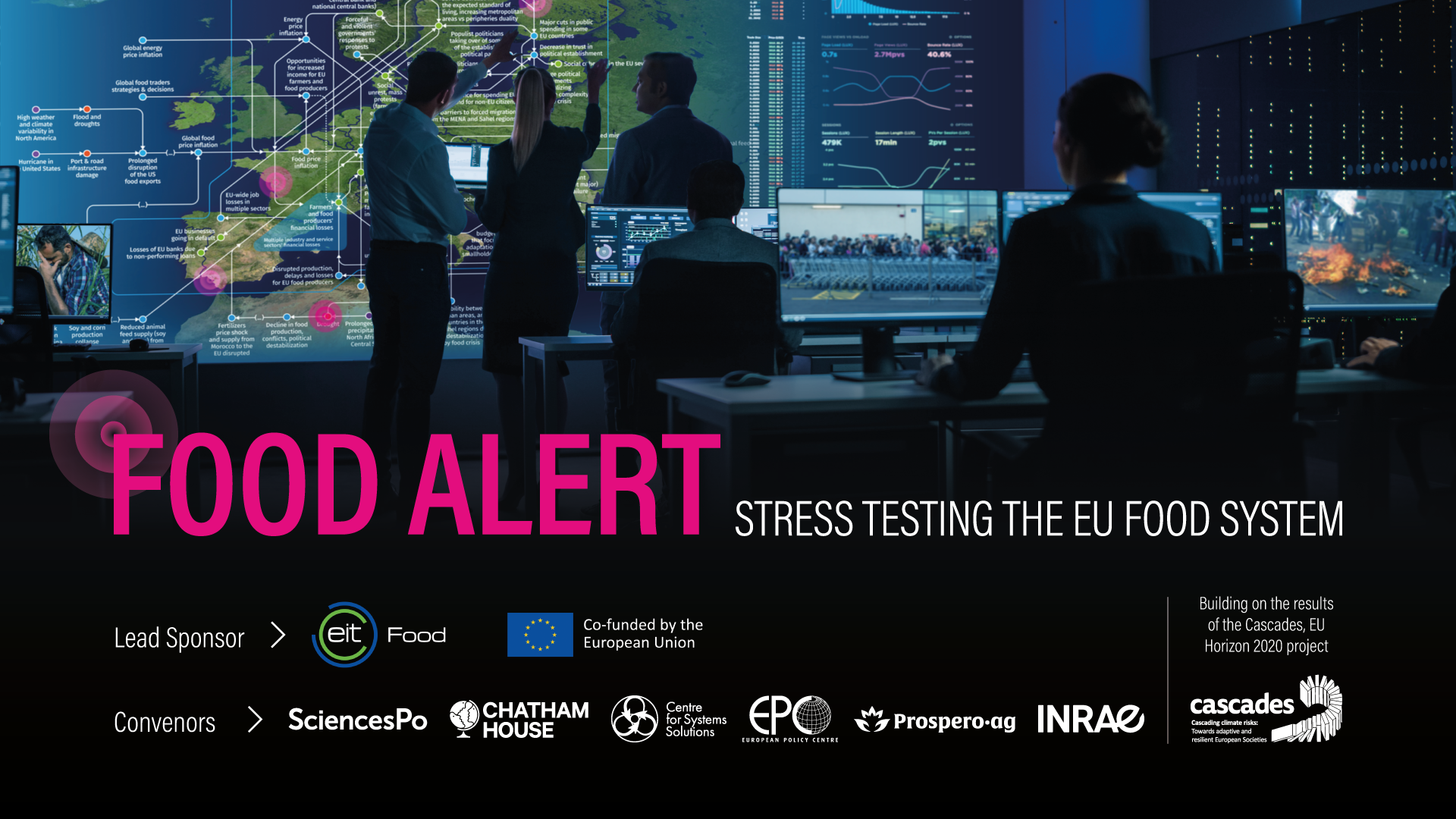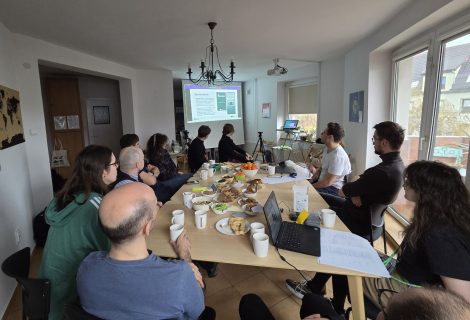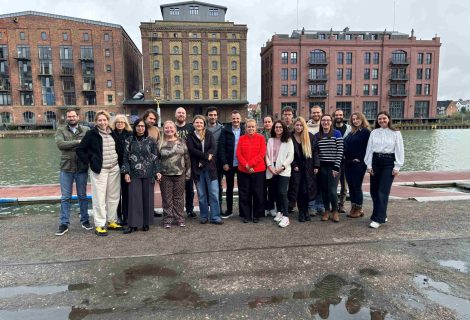Farmer Protests in Brussels during “Food Alert” Workshop
Farmer Protests in Brussels during “Food Alert” Workshop
On February 1, 2 in Brussels, Belgium, together with our Project Partners Sciences Po, Prospero & Partners, Chatham House , European Policy Centre and INRAE organised a food crisis simulation expert workshop just as angry European farmers were closing roads and blocking food deliveries into the city, demanding concessions from the European Parliament and Commission linked to trade, environmental standards, and livelihoods. Within this emotive backdrop, 60 workshop participants considered current policy frameworks and gaps related to climate-based threats to European supply chains and disruptions to the food sector.
Over the course of this “Food Alert” crisis simulation workshop, stakeholders from government, industry, civil society, academia, agriculture, and media engaged in lively debate aimed at anticipating and responding to future food crises in Europe.
Policy Simulation: a tool for imagining potential food crises
The first day started with the Food Alert Policy Simulation. Policy simulations take participants into the future to engage them in co-creating policies to reduce risk, build resilience, and/or achieve other urgent goals. The simulation is meant to invoke emotion, encourage learning, promote knowledge-sharing, and motivate collaborative action.
In the Food Alert simulated scenario, participants assumed the roles of ‘Task Force’ members entrusted with the crucial task of formulating policy recommendations for senior EU decision-makers, to address the unfolding food crisis. Participants were split into three working groups, each addressing a different aspect of the multifaceted nature of the scenario: Crisis Response Mechanisms, Agriculture & Food Production, and Trade & Finance.
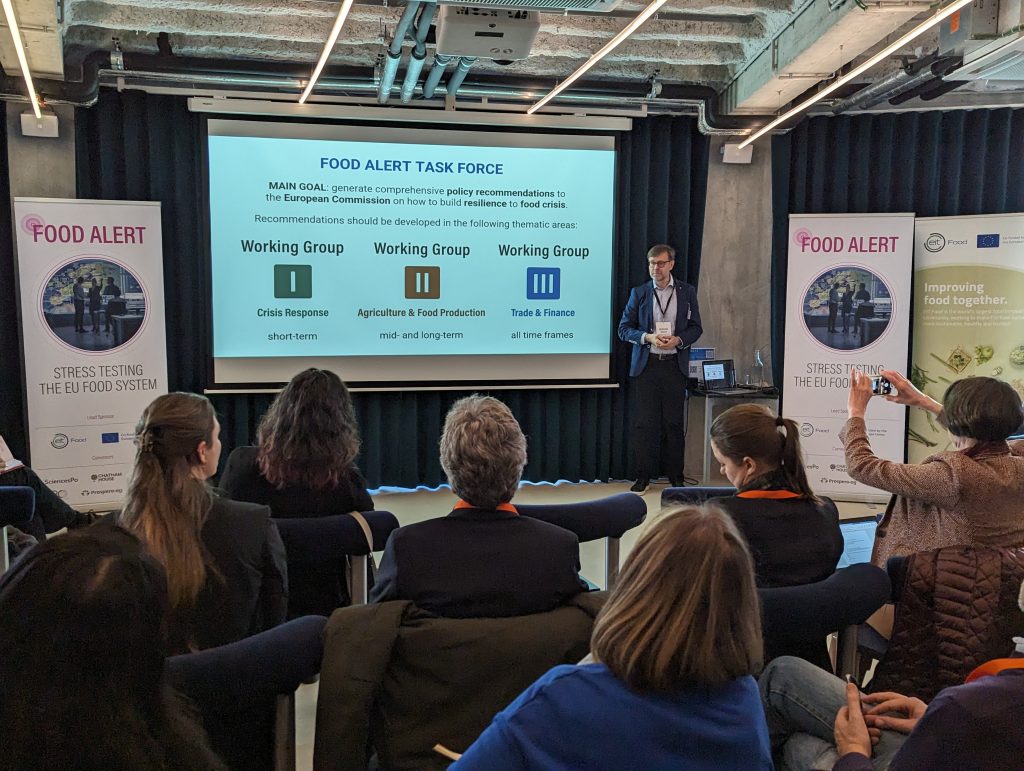
Within these working groups, participants collaborated intensively, pooling their expertise to craft a variety of relevant policy recommendations. These spanned a broad spectrum, encompassing social and nature-based solutions, communications, subsidies for livestock farming – to mention only a few examples.
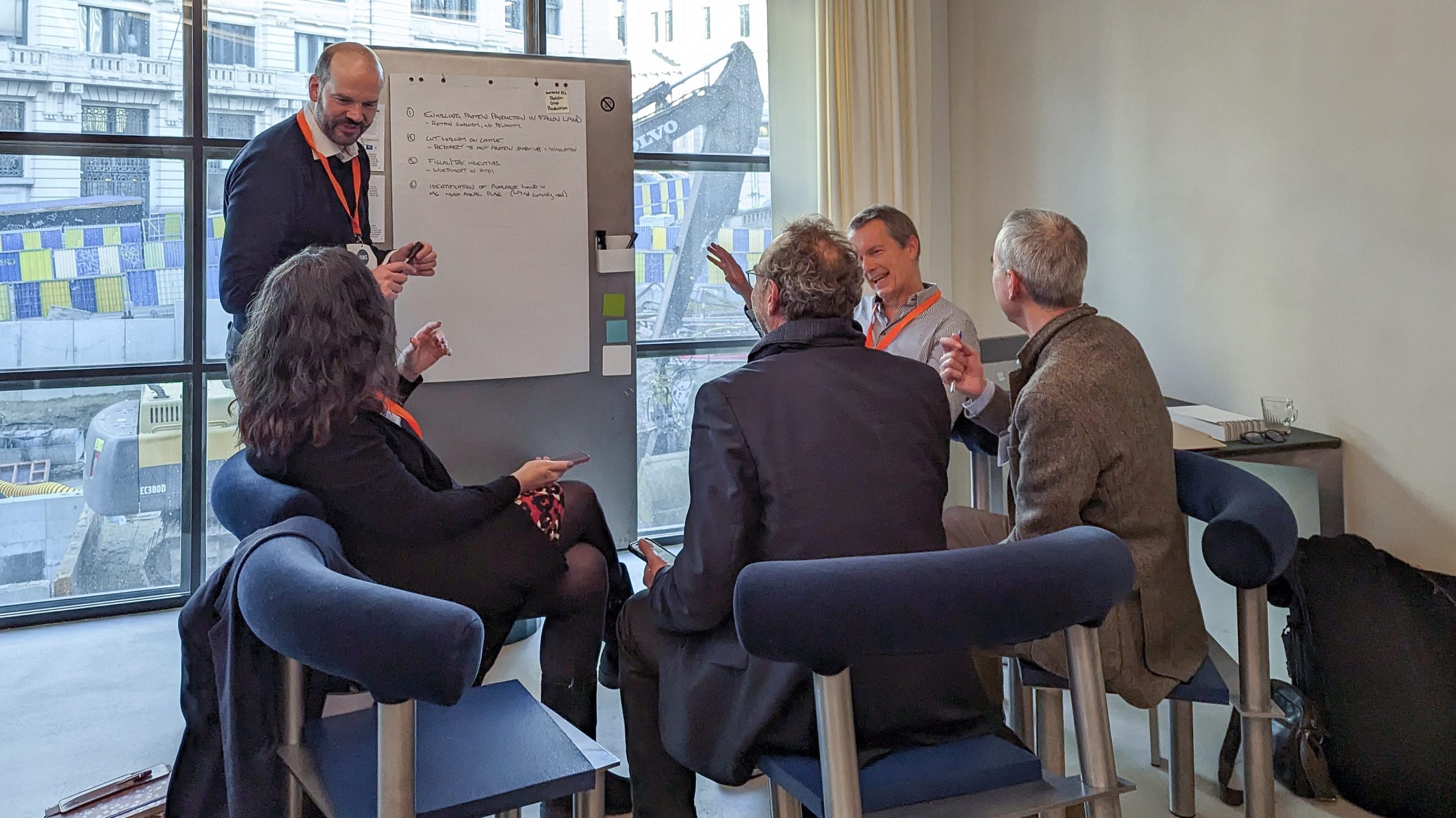
Food crises are already happening!
The Food Alert simulation scenario presented to participants during the event unfolded earlier than anticipated. On the inaugural day of the Food Alert Workshop, Brussels experienced road blockages by farmers protesting the rising costs of farming, cheap imports, and EU environmental policies that impact farmers’ work.
This tangible manifestation underscored the relevance of the Food Alert Simulation, which looked at potential food shortages in the EU caused by climate-related disruptions and a fictional palm oil export ban. While these simulated food supply shocks were projected to occur in 2026, the farmers’ strikes in Belgium last week led directly to empty food shelves in local stores.
Real-life implications of the Food Alert Project
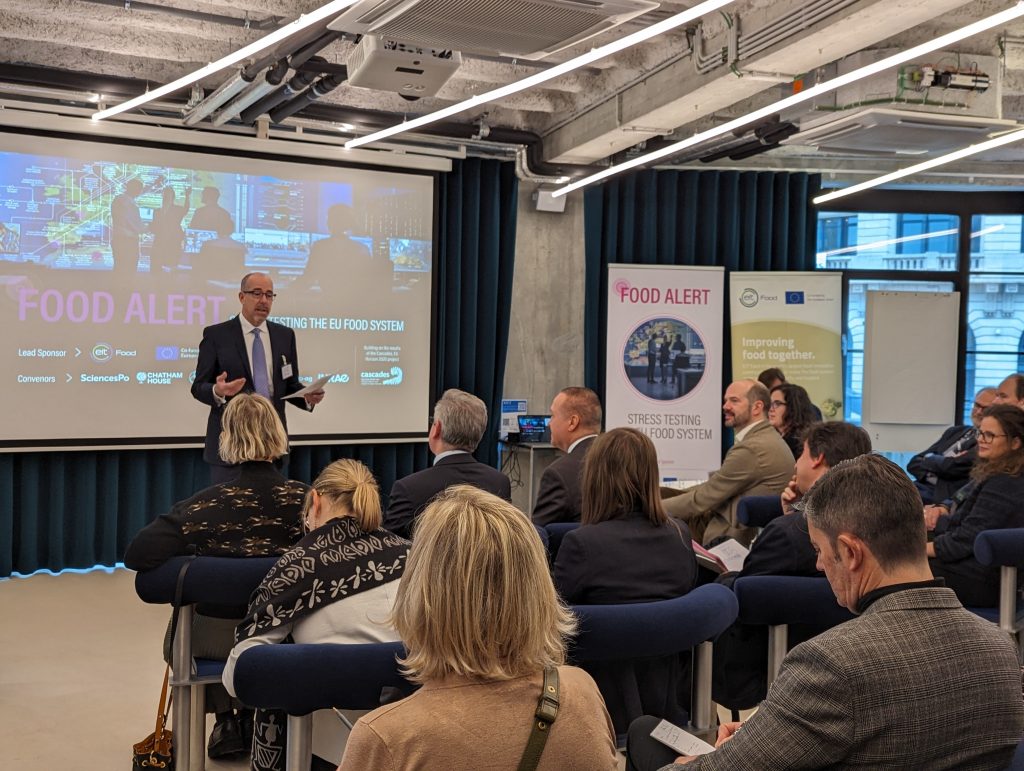
On the second day of the Food Alert Workshop, participants, drawing from their experiences within the policy simulation, transcended the confines of a single crisis scenario to formulate broad policy recommendations. A comprehensive report detailing those recommendations will be released publicly on 27 March at the Permanent Representation of the Netherlands to the EU. The report will be disseminated to the EU Commission and Members of Parliament, providing valuable insights and ideas for strategic planning.
Lastly, the workshop served as a platform to assess the efficacy of policy simulations in exploring potential crisis solutions. The project organisers have been invited to share the results of this project with the European Food Security Crisis preparedness and response mechanism (EFSCM) group in April, in Brussels. Likewise, the OECD – OCDE will use the “Food Alert” project as one of three examples of building resilience strategies. Meanwhile, project organisers are also working to compile the results of a participant feedback survey, to be included in the summary report. This report will seek to shed light on the utility of policy simulations in terms of crisis management and preparation, and offer valuable perspectives on refining and advancing policy-making methodologies.

